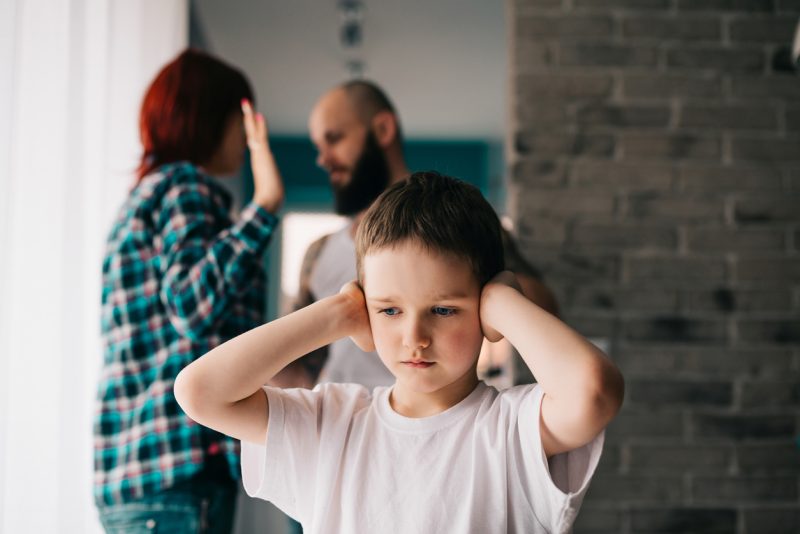
Separation and divorce are life-altering events. As a dad, your responsibilities don’t end when the relationship does—in many ways, they grow even more complex. One of the biggest questions many single fathers wrestle with is:
“When is the right time to start dating again?”
It’s a deeply personal question, and the answer isn’t the same for everyone. But before diving back into the dating world, there are some important things to consider—especially when you have children, emotional wounds, and a co-parenting dynamic to navigate.
This blog aims to help separated or divorced dads reflect honestly on where they’re at and what steps they might take before getting involved in a new relationship.
1. Have You Taken the Time to Heal?
One of the most important things to ask yourself is: “Am I emotionally ready?”
Jumping back into dating too soon can sometimes be a way to avoid loneliness or numb the pain of separation. But if you haven’t worked through the emotional fallout—anger, grief, regret, or even relief—you may end up carrying emotional baggage into your next relationship.
Ask yourself:
- Have I accepted that my past relationship is over?
- Do I still feel resentment, guilt, or sadness?
- Am I comparing everyone to my ex?
- Am I looking for a distraction or truly ready to connect?
Healing isn’t about pretending everything is fine—it’s about taking time to understand what went wrong, what you’ve learned, and how you want to grow. Whether through therapy, journaling, men’s groups, or honest conversations, make sure you’re not carrying unresolved pain into something new.
Dating after divorce for dads works best when you’re coming from a place of self-awareness, not emotional survival.
2. Have You Worked on Yourself?
After a breakup, it’s easy to point the finger. But real growth comes when you take a hard look at yourself and ask: “What part did I play?”
Working on yourself doesn’t mean blaming yourself—it means taking responsibility for your own growth.
- Have you learned from past mistakes?
- Are you more emotionally available than before?
- Have you reconnected with your passions and values?
- Do you have a sense of purpose outside of a relationship?
- Do you want more children? be honest.
A healthy relationship starts with a healthy you. The more grounded, self-aware, and emotionally balanced you are, the better partner and father you’ll be moving forward.
3. How Will Your Children Handle a New Girlfriend?
For dads, dating again after separation isn’t just about your feelings—it’s about your children’s as well. Kids process breakups differently. Even if the relationship with your ex was unhealthy, it still represented “normal” for them. Introducing someone new too quickly can create confusion, jealousy, or insecurity.
Here are a few tips to consider:
- Don’t introduce your kids to someone new too soon. Wait until the relationship is serious and has long-term potential.
- Talk to your children about how they’re feeling. Give them space to process at their own pace.
- Reassure them. Let them know they’ll always be your top priority, and that your love for them will never change.
- Respect their emotions. Kids may not immediately warm up to a new partner. That’s normal. Let trust build over time.
The key is to put your children’s emotional security first. If they feel safe and heard, they’ll be more likely to adjust when someone new enters the picture.
4. Are You Looking for the Right Reasons?
If you’re thinking about dating again, ask yourself: “Why do I want to be in a relationship?”
Is it because you’re lonely? Looking for validation? Feeling pressure from friends or social media?
Or is it because you’re in a good place, emotionally whole, and ready to share your life with someone again?
A healthy relationship doesn’t fix what’s broken in us—it complements the healing we’ve already done. If you’re hoping someone else will make you feel better, more complete, or less alone, you may be setting yourself (and them) up for disappointment.
Start dating again when you’re excited to share your life—not when you’re desperate to escape it.
5. Consider the Impact on Your Co-Parenting Dynamic
Even if you’re no longer with your ex, co-parenting still requires teamwork. Introducing a new relationship can create waves—especially if there are unresolved tensions.
Here are a few things to keep in mind:
- Keep communication respectful. You don’t need your ex’s permission to move on, but being mindful and mature about your choices helps maintain a peaceful dynamic for your kids.
- Avoid drama. Don’t use a new partner to make your ex jealous or prove a point. That kind of energy always backfires.
- Protect your kids from adult issues. Don’t put them in the middle of disagreements or use them as messengers.
Being a good co-parent often means swallowing your pride and keeping the focus on what’s best for the kids—even when it’s hard.
6. There’s No Set Timeline
Some people start dating within a few months. Others wait years. There’s no universal right time.
Instead of focusing on a specific date or deadline, focus on your readiness.
Ask yourself:
- Am I emotionally stable and self-aware?
- Do I have the time and energy to give to a new relationship?
- Am I confident in how I’d balance my role as a dad and a partner?
- Would my kids feel secure and supported during this change?
When to start dating again after separation depends on your answers to these questions—not anyone else’s expectations.
7. Take It Slow
When you do feel ready to start dating again, give yourself permission to take it slow. You don’t need to rush into something serious.
- Go on low-pressure dates.
- Focus on building friendship and trust.
- Be honest about your situation and priorities as a dad.
- Observe how your new partner responds to your role as a father.
Dating with kids is different. You’re not just choosing someone for yourself—you’re potentially choosing someone who could be around your children. Take your time, and let your values—not your emotions—guide your decisions.
Final thoughts to consider: Your Journey, Your Pace
Starting to date again as a separated or divorced dad is a big step. There’s no perfect formula. But by taking the time to heal, work on yourself, and protect your children’s emotional world, you’ll give yourself the best chance of building something healthy and lasting.
You deserve love, connection, and joy—but not at the cost of your peace or your children’s well-being.
So if you’re wondering, “How early should I start dating again?” — the honest answer is:
When you’ve done the work, feel emotionally ready, and can show up as the kind of partner and father you want to be.
Take your time. Be kind to yourself. And trust that when the time is right, you’ll know. Going too early can be traumatic for not only you!



 The best time to introduce your children to your new partner can vary depending on several factors, including the age and temperament of the children, the nature and stability of the relationship, and the emotional readiness of everyone involved.
The best time to introduce your children to your new partner can vary depending on several factors, including the age and temperament of the children, the nature and stability of the relationship, and the emotional readiness of everyone involved. A survey was conducted at a primary school where children between the ages of 4-8 were asked “what is love”. The answers they got were broader and deeper than anyone could have imagined.
A survey was conducted at a primary school where children between the ages of 4-8 were asked “what is love”. The answers they got were broader and deeper than anyone could have imagined.



 You could not imagine how much importance your child puts on your promises i.e. when you said you would buy them that special gift, when you promised you would be there for them, there are times they know its boring for you but in the end it makes them feel secure and loved that you are there.
You could not imagine how much importance your child puts on your promises i.e. when you said you would buy them that special gift, when you promised you would be there for them, there are times they know its boring for you but in the end it makes them feel secure and loved that you are there.


















Introducing your child to your new partner
The advice in this article will be very difficult for some of you to agree with. That being said, let me also say that generalizing about people whose lives may be very complicated is difficult to do, so these are just general guidelines not informed by your particular story.
My rule of thumb is that divorced and separated parents should keep children out of their social lives until they have been separated or divorced for a period of at least two years and you have known your potential new partner for at least a year. Let me explain the easy things first.
New Partners
You might think your new partner is the greatest thing since sliced bread, but at one time you thought the same thing about the person whose name is on the bottom of the restraining order you just got. It’s hard to resist the power of someone who not only makes you feel good about yourself but reinforces your negative feelings about your ex.
With all of that conflict to concentrate on (especially if both of you are going through divorces), who has time to create trouble in the new relationship? What happens as a result is an extended “honeymoon period” in the new relationship. Having your kids along with your new partner helps legitimize the relationship, especially if your kids like your new partner’s kids and everyone gets along—but it might very well place unnecessary pressure on the kids.
Reasons to Take It Slow
One reason to take it very slow in having your children cozy up to your new partner is that often, the “second time around” relationship is just as bad as or worse than the first relationship you had, and you want to get away from that person too. That may be fine for you, but what if your kids like that person and the people who tag along with him or her? What happens then is that your children go through another round of sad separations, and ultimately they become mistrustful and suspicious of the next round of people you bring them into contact with. For kids, these separations can be as painful as the divorce from their mother or father.
Then there are the situations where you bring your children into contact with your new partner and they hate that person. What you have created in that circumstance is a pipeline of complaints that go from your children to the other parent, and that creates yet another set of problems.
Children of divorced parents often feel split loyalties between a new partner or parent figure and a biological parent. This is made worse when one of the biological parents is insecure or angry. It is very easy for children to pick up on, and as a result they try to please and soothe that parent by being critical of Mom or Dad’s new boyfriend or girlfriend.
With all of the problems that are associated with bringing children into contact with new boyfriends and girlfriends, it is a wonder why people do it with such frequency. There are two main reasons: One is that when parents separate they yearn for the return of a “normal” life with a companion. In their desire to create that normal life, they make decisions too quickly or without thinking through all of the possibilities and often end up replacing one dysfunctional relationship with another. As adults we are entitled to do this until we get it right, but we should try to avoid exposing children to our dating disasters. Related to this is the second main reason—when a parent adopts the philosophy that “My kids and I come as a package deal. If you think you want to be with me, my kids have to approve.” This is a perfectly reasonable philosophy, but it must be employed later rather than sooner. You should figure out whether the person is worth having your children evaluate them first.
Why the Two-Year Rule Works
I advocate the two-year rule because by the one-year mark most couples have seen each other at their best and at their worst. If you have seen your partner at your worst and he or she does not try to damage your self-esteem when you fight, and you have successfully solved many of the relationship problems you could not solve with your ex, then your relationship has a better than 50-50 chance of succeeding in the long term. I have seen quite a few complicated and difficult circumstances arise because people are in too much of a hurry to introduce their children to their new partners.
Another advantage is that after some time has passed, even young children will expect their mothers and fathers to want companionship, and the children will not be as focused on wanting to reunite the family. There is no guarantee your child will ever stop wanting this, but in most cases children will want it less after a few years or at least accept the reality that it’s not going to happen.
Once you have passed the two-year mark of being out of your old relationship, and once you know your new partner for a year, you can start talking to your children about meeting your boyfriend or girlfriend. If your children are old enough to understand what a boyfriend or girlfriend is, don’t beat around the bush. This is actually one of the advantages you have gained by waiting such a long time before introducing the person.
The Sleepover Question
Different people have different ideas about whether parents should invite their boyfriends or girlfriends to sleep over at their house. I would say avoid it, especially with young children. Children are growing up very quickly these days, and they will start to ask questions about whether you are having sex with your boyfriend or girlfriend because you are sleeping with them. You could properly tell them this is none of their business, but the situation will nevertheless make them feel uncomfortable, and you will ultimately have to deal with what kind of model this presents to your children, especially when they are fifteen years old and want to bring their boyfriends and girlfriends home to your house to sleep over.
Finally, it might be very tempting to bring your little children into bed with you and your new partner to snuggle or watch television, but I have seen this cause problems between mums and dads who become furious at the thought of their children climbing into bed with someone who is a “stranger” to them and cuddling. Before you permit your child to do this, ask yourself it is worth the legal fees you will have to spend in order to convince someone that you think there is no harm in it.
Quick Tips